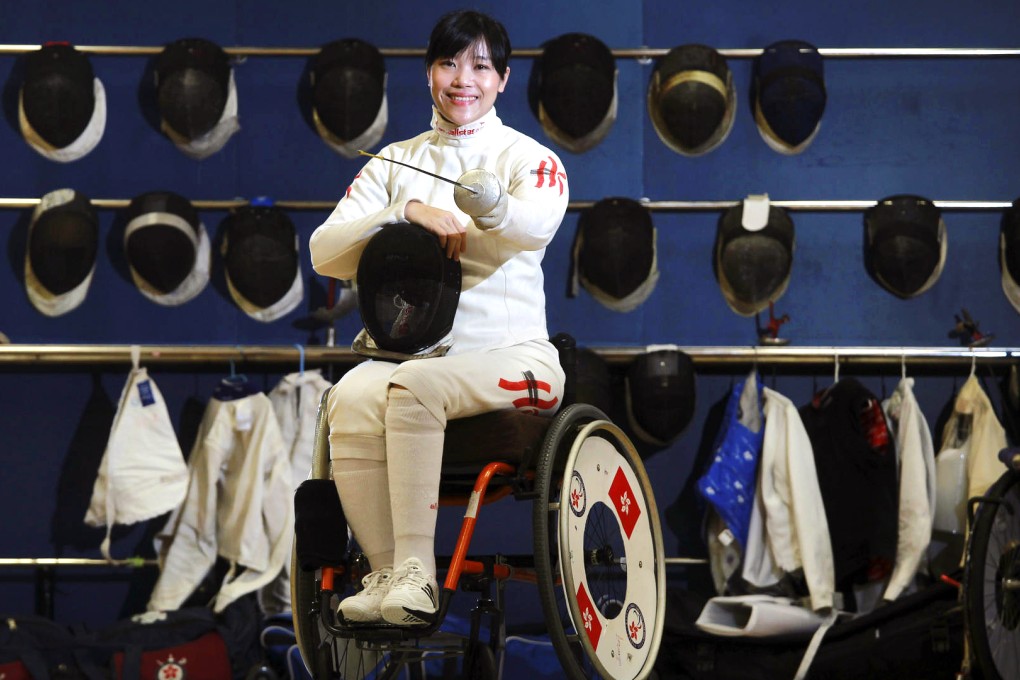Hong Kong Paralympic gold medallist fencer Alison Yu on cancer and her dazzling career
The wheelchair athlete talks to Bernice Chan about overcoming cancer to excel in her sport.

TWhen I was 11 years old, I was diagnosed with bone cancer. My left knee became very swollen, but it wasn't painful. My mum took me to see a traditional Chinese medicine doctor and, luckily, he had Western medical training, too. He told us to go to the hospital. After CT scans, an MRI and a biopsy, they made the cancer diagnosis. I had to stay at Lady Pao Children's Cancer Centre at Prince of Wales Hospital, in Sha Tin. It was terrifying because I saw children lying in their beds, many of them with no hair. They had intravenous drips hanging from metal poles we called "trees". To walk around you had to take your "tree" with you. I cried and told my mum I didn't want to stay there, but she said I had to. My mum was very upset because she wondered if she had done something wrong. Had she not looked after me well enough? Did she feed me the wrong things? I lost all my hair, but I made friends on the cancer ward in the nine months I was there, and I learned how to play mahjong.
I had several surgeries. First they removed the tumour in my femur and then replaced my femur with a donated bone. Then that bone had a fracture in it and they had to put needles into it to fix it. I then got an infection and had to change the dressing every day. When I was 13, I decided to have my leg amputated. Seeing my leg deteriorate had given me time to accept that amputating it would be better. My parents said I should make the decision myself, but they had to sign the form because I was underage. I got fitted for a prosthesis and physically had a very difficult time adjusting. I'm a very anxious person and wanted to walk fast, but with the prosthesis I walked like a tortoise.
My mum wanted me to do some exercise so I joined the Sports Association for the Physically Disabled. We chose swimming because I used to swim. I had a friend there who did wheelchair fencing and she insisted I try it. I found the outfit elegant, and you get to wear a helmet. When I started training it was challenging because there is an opponent in front of you, but being able to defeat them gives you satisfaction. With swimming you just look at the bottom of the pool.
Wheelchair fencing has almost the same regulations as able-bodied fencing when it comes to the outfit and foil, epee and sabre, and the 14 metres by two metres fencing area. But our wheelchairs are fastened to the ground so we have to react much faster, it's more challenging. To be a good fencer you need to train physically, technically, strategically and psychologically. The last one is the most important, and the hardest. How you overcome failure is most important. When you win, you feel great. But when you lose, you don't want to talk to anyone. It's what you do to bounce back that's important - you have to understand why you lost and how you can improve.
I like to talk with top athletes from other sports, to learn how they tackle obstacles, and I collect their solutions. Physically, I work on my endurance, to move fast. I swim, do the rowing machine, bench press and also train the small muscles in my hands. I also train my lower body for balance. Training is hard. When I want to take a break, I remind myself: I want to compete in the Olympic Games.